The Genius Of… Pixies – Surfer Rosa
Pixies’ ferocious debut album changed the face of alternative music, inspiring David Bowie, Nirvana and Smashing Pumpkins in the process. We salute the brutality and melodicism of Surfer Rosa.
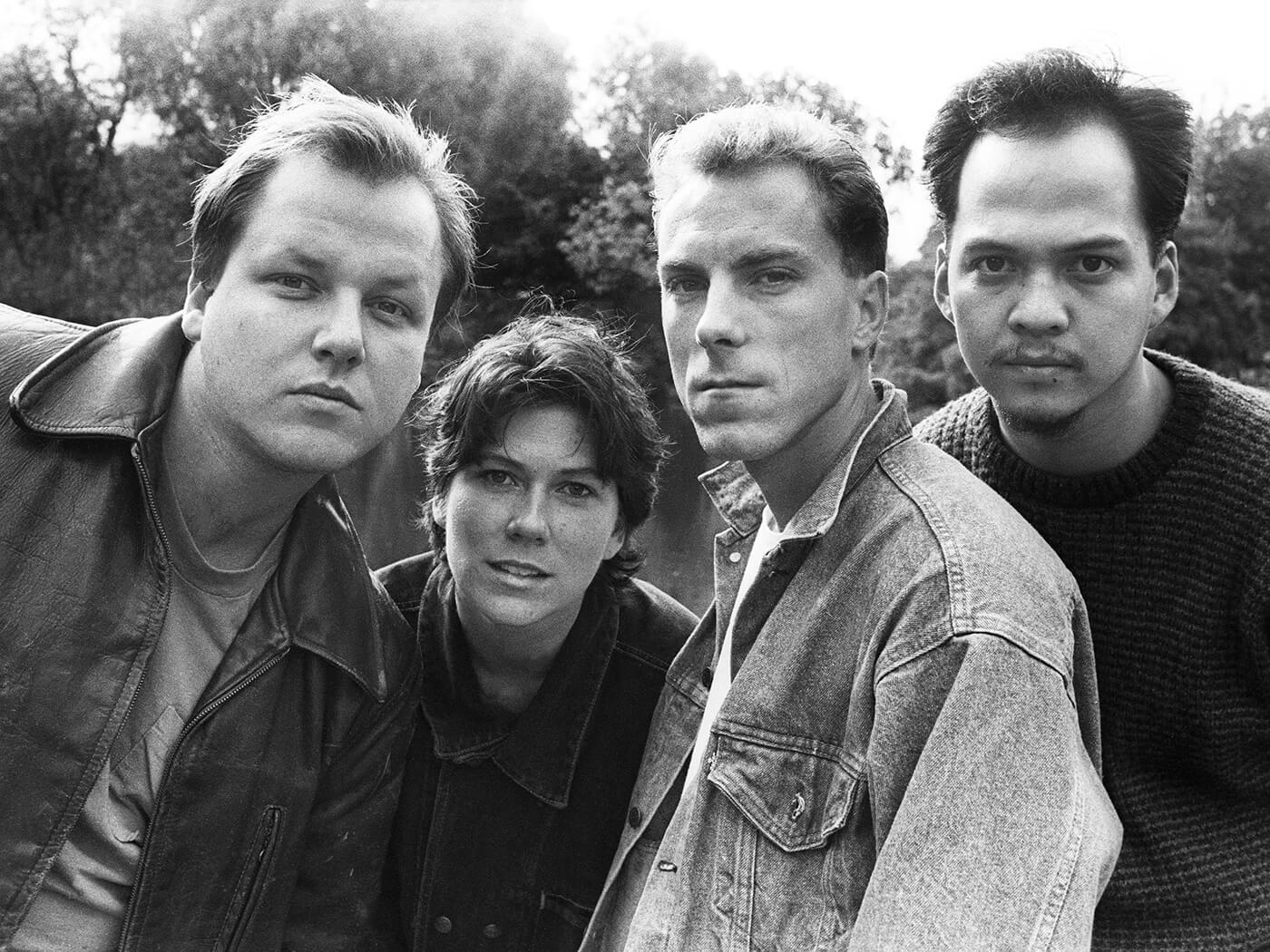
Image: Rob Verhorst / Redferns
Loud and quiet
Incest, venereal disease, sex and blood-curdling violence. An explosion of Catholic repression and a pair of “rough and ready” guitarists twisting together the unlikely stylistic bedfellows of flamenco, surf, punk and thrash. It’s fair to say Surfer Rosa is not an easy listen. Yet Pixies‘ debut album is widely regarded as one of the most influential records of the modern era, its primal aggression and quiet-loud dynamics doing much to inspire the grunge movement that followed.
David Bowie called the album, which went Gold on both sides of the Atlantic, “the most compelling music outside of Sonic Youth made in the entire 80s”; it blew PJ Harvey‘s mind; Kurt Cobain admitted to ripping off Surfer Rosa; the artists not yet known as Smashing Pumpkins and Radiohead were listening closely, too.
Writing on the album’s 30th anniversary in 2018, NME‘s Mark Beaumont recalled, “All I heard was an unhinged flamenco punk maniac barking and yelping over some of the most beautifully brutal and cruelly melodic songs I’d ever heard. Surfer Rosa blew my tiny teenage mind.”
Surfer Rosa‘s origins lie in the Purple Tape, a demo recorded over six days in March 1987 using $1,000 borrowed from singer and guitarist Black Francis’ father. 4AD boss Ivo Watts-Russell was impressed enough to sign the band and put out eight songs from the demo as the EP Come On Pilgrim. By the time Pixies went into Boston’s Q Division Studios to record Surfer Rosa with producer Steve Albini in December 1987, they were a tightly wound unit. Countless hours of rehearsals in a sewage-soaked basement rehearsal room enabled the whole thing to be wrapped up in just 10 days, costing $10,000 – with 4AD paying Albini a flat fee of $1,500.
Wantonly unorthodox
Central to the chilling brilliance of this strange, unsettling album is the balance and contrast between the three main players – Francis (real name Charles Thompson), Philippines-born lead guitarist Joey Santiago and bassist Kim Deal. Francis’ more controlled rhythm playing is a steadying counterpoint to Santiago’s wantonly unorthodox approach, while Deal’s chugging basslines bring a melodic levity to the seething brew. Try to imagine Gigantic without her simple yet immediately evocative contribution, for example.
Both guitarists, who met at the University Of Massachusetts, wanted to use Telecasters on Surfer Rosa, but Francis got there first, deploying his blonde 1980s American Standard into a Vox AC30 for the sessions. Santiago settled on a Les Paul, borrowing Deal’s 1970s Goldtop and plugging in to a Peavey Special, while the bassist used an Aria Pro II Cardinal Series through a Peavey Combo 300.
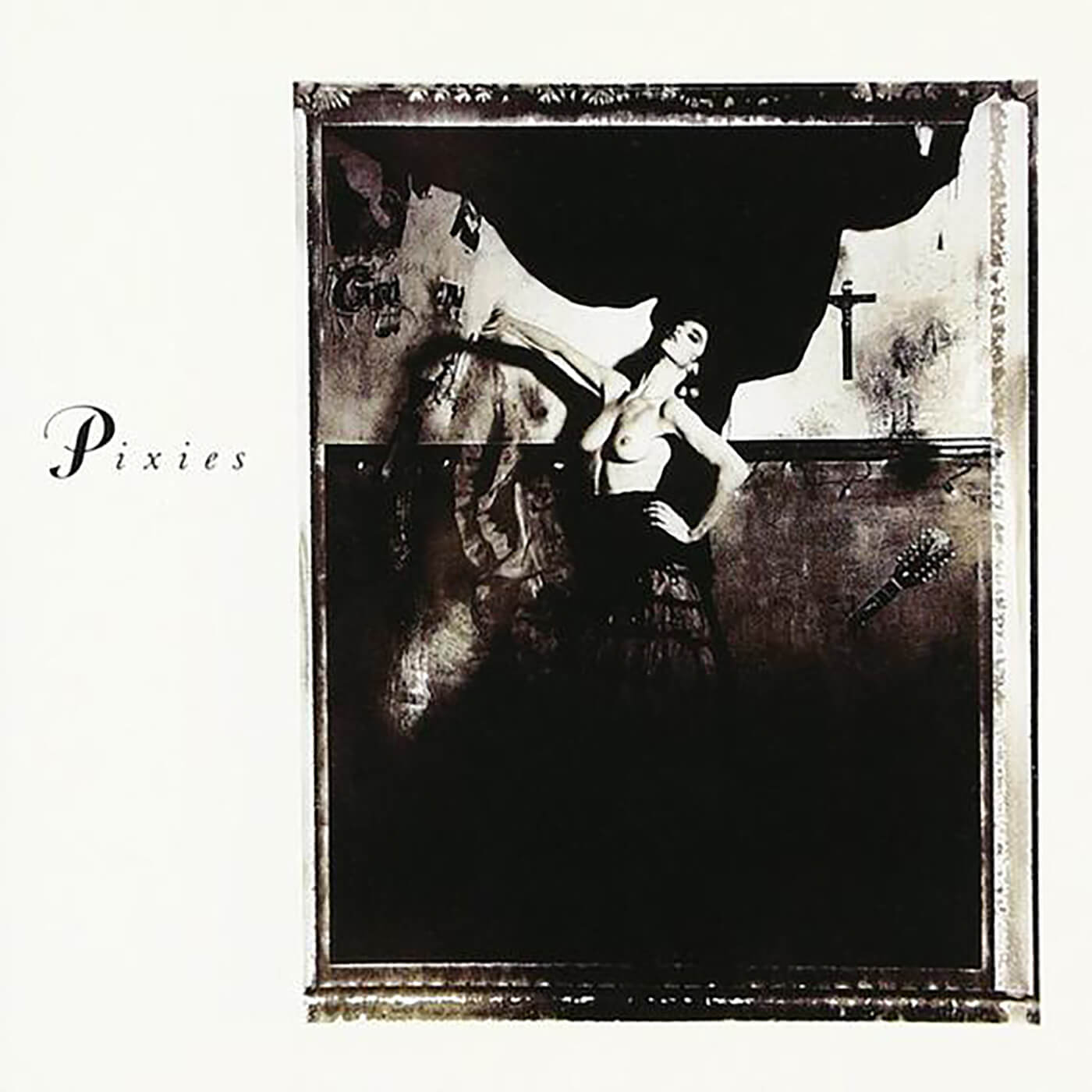
“A Les Paul is a really good complement to a Tele,” Santiago told Guitar.com in 2018. “If you’ve got the Fender, you’re gonna have to have the Gibson to counteract it, unless you want to be a country act, and then you’re all Tele’d out. It’s Mick Jones and Strummer and all that good stuff…”
Both players were determined to carve their own niche, too, rejecting the histrionic hair metal tropes that dominated rock music in 1987. “Mainstream guitar had a lot of typewriting skills,” said Santiago. “The only thing that was impressive about it for me was the speed. But in the back of my mind I was like, ‘I don’t care’. It just wasn’t my thing.”
Francis and Santiago were ripping up the rule book, messing with song structures and pairing chords and riffs that sat uneasily, Santiago’s anti-solo stance at the heart of many of the album’s most memorable moments. Witness the thrilling sense of discord in the riff and churning unison bends on Where Is My Mind? That song’s solo, too, is unusual, Santiago playing notes from the B minor pentatonic scale over major chords.
“The music is unconventional,” Francis told Guitar.com. “There’s a lot of half-steps, a lot of chords that don’t theoretically go with the key, but it seems to work.”
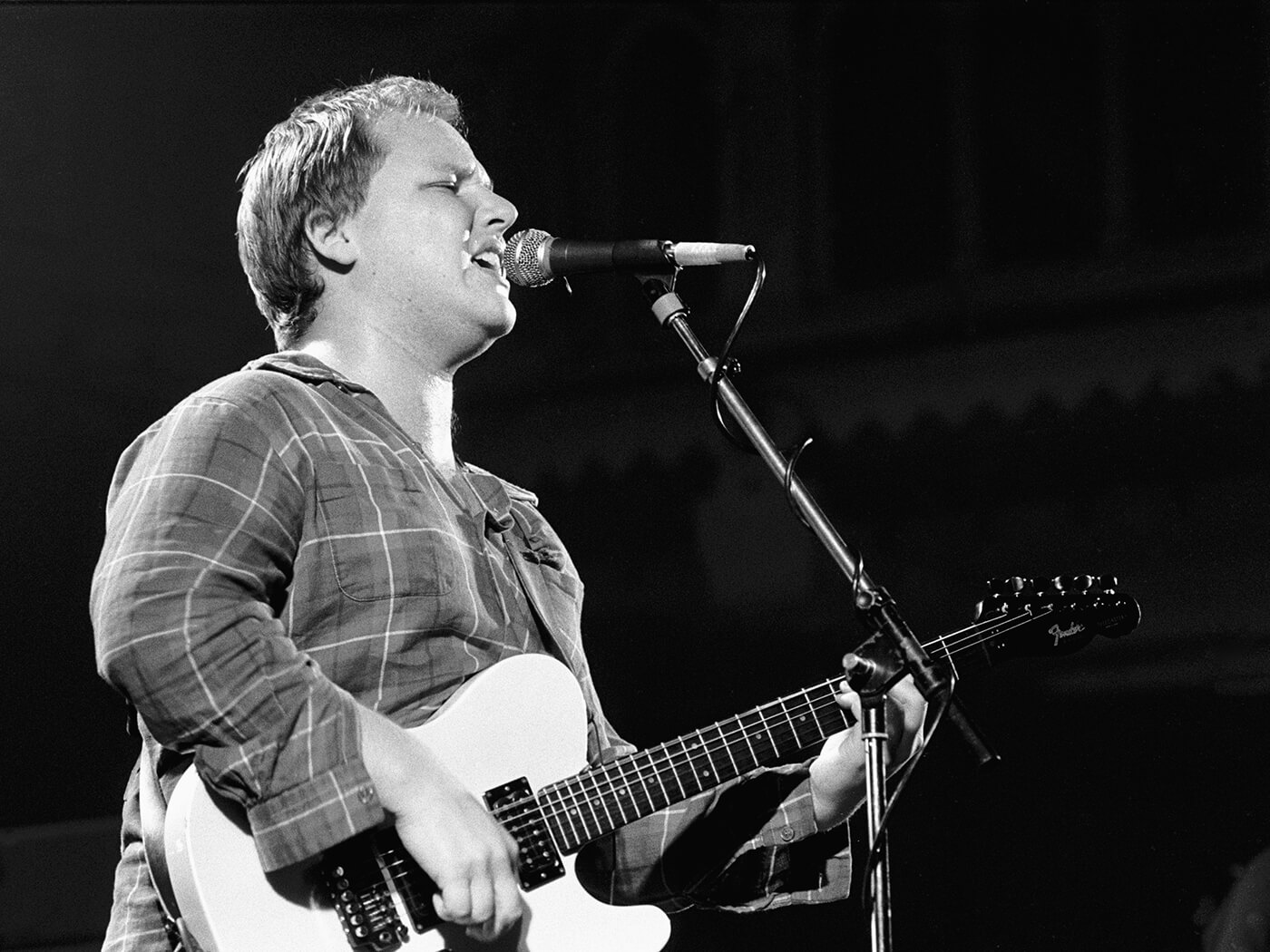
Blandly entertaining college rock
He may have been a grumpy critical presence who baulked at the title of producer and later described Pixies as “blandly entertaining college rock”, but former Black Flag member Steve Albini’s stark yet restlessly inventive production is vital to Surfer Rosa‘s singular sound.
Albini deployed his full bag of tricks inside Q Division, telling both guitarists to use metal picks, experimenting with running Francis’ vocals through distortion pedals, recording Kim Deal’s Gigantic vocal in the bathroom, leaving in snatches of studio conversations and encouraging Santiago to get creative.
“I remember doing Vamos and throwing things at the guitar, I want to say they were tennis balls,” Santiago told Guitar.com.
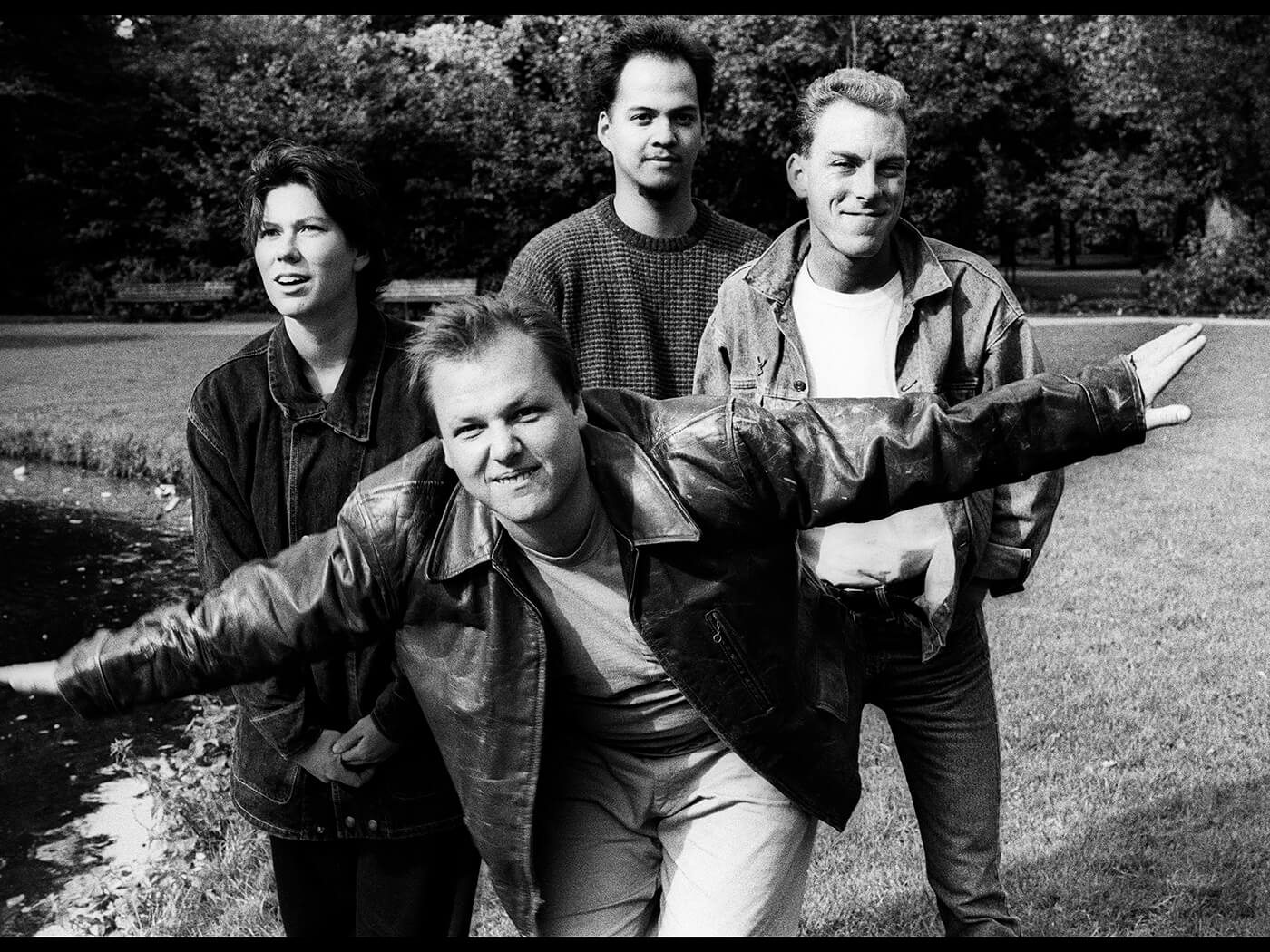
The end product is a set of songs that buzz with a frightening feral energy. After Santiago’s angular riff on opening track Bone Machine, Francis howling “I’m the horny loser/ you’ll find me crashing through my mother’s door” on Break My Body and the breathless charge of Something Against You and Broken Face, it’s something of a respite when the sweet melodicism of Gigantic arrives five tracks in, yet somehow only eight and a half minutes into Surfer Rosa.
The pace and thematic content remain frenetically intense throughout the remaining eight songs, on Cactus Francis disturbingly imploring his lover to “Bloody your hands on a cactus tree / Wipe it on your dress and send it to me”. Santiago’s one-note riffing burrows all the way through Oh My Golly! and Vamos is littered with squalls of feedback, pick scrapes and savage fretting. By the end of the album, you’d be excused for needing to catch your breath.
In the autumn of 2018, Pixies took over London’s famous Roundhouse venue for five nights to celebrate the legacy of this intoxicating, otherly classic. The sight that endures from that heady October evening is of Joey Santiago, effortlessly cool in a white suit, navigating that extended solo in Vamos using an unplugged jack cable before plugging in, swinging his Goldtop over his head and playing the remainder of the song down his spine. It was the very essence of Surfer Rosa – strange, blisteringly loud, horribly discordant and utterly enlivening.
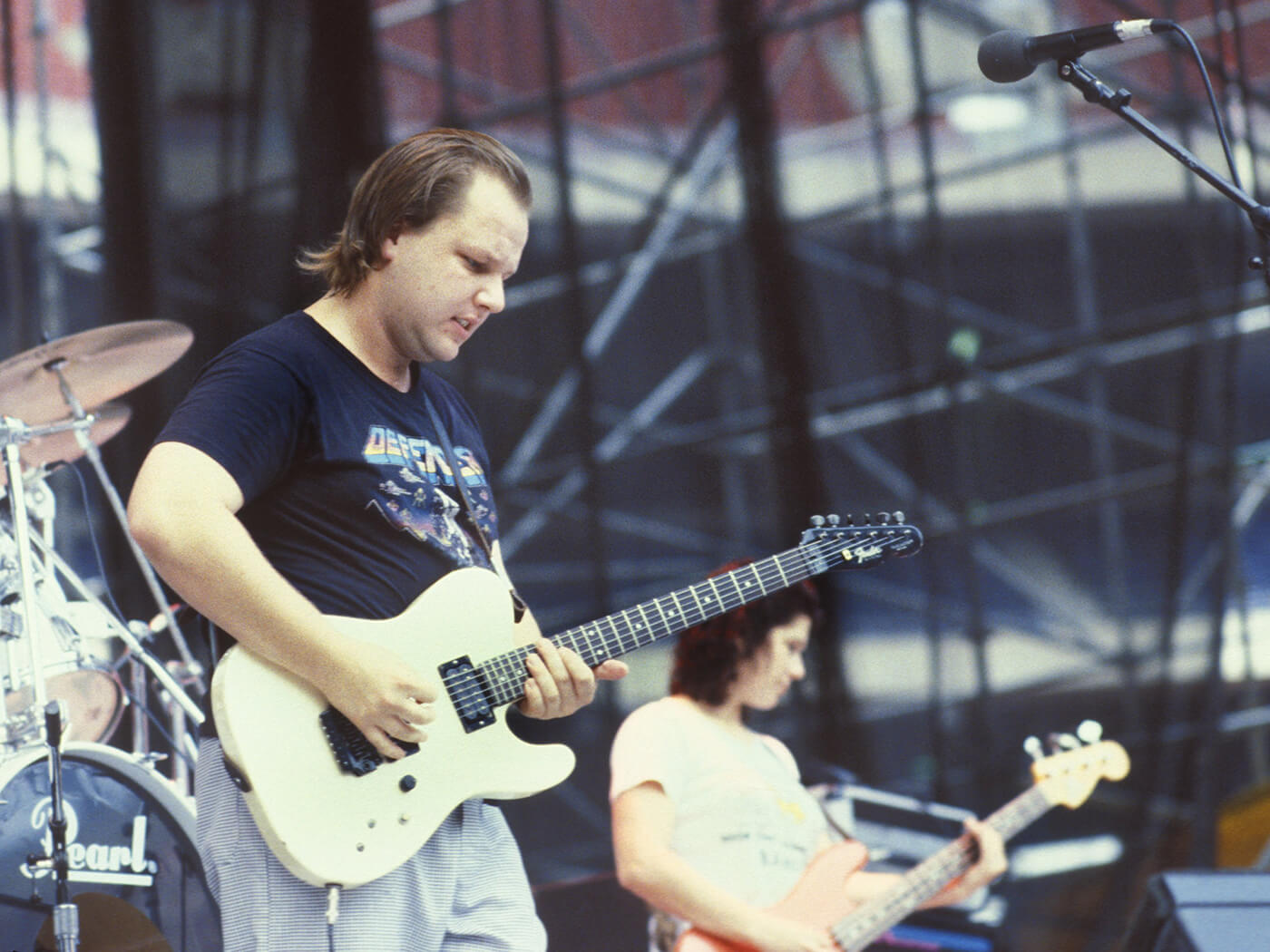
Infobox
Pixies, Surfer Rosa (4AD, March 1988)
Credits
- Black Francis (vocals, guitars)
- Kim Deal (Bass, vocals)
- Joey Santiago (guitars)
- David Lovering (drums)
- Recorded and engineered by Steve Albini
Standout Guitar Moment
Vamos
More information about Pixies here. For more features, click here.
